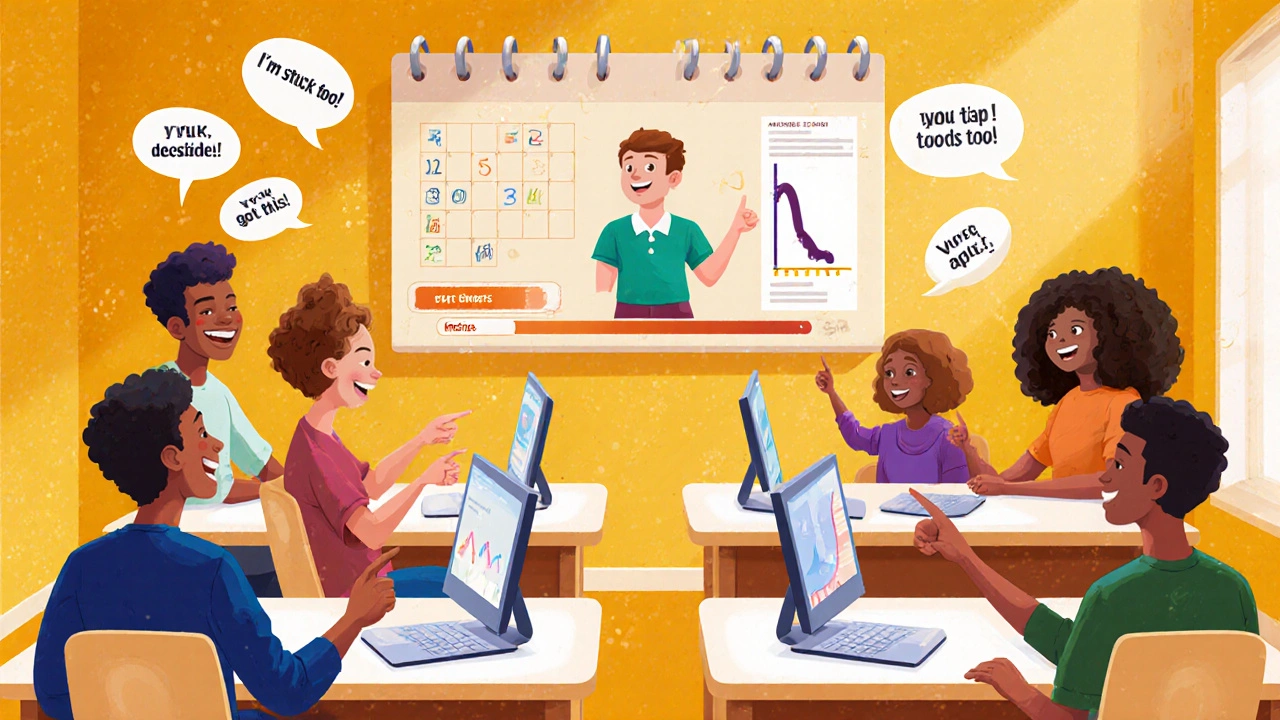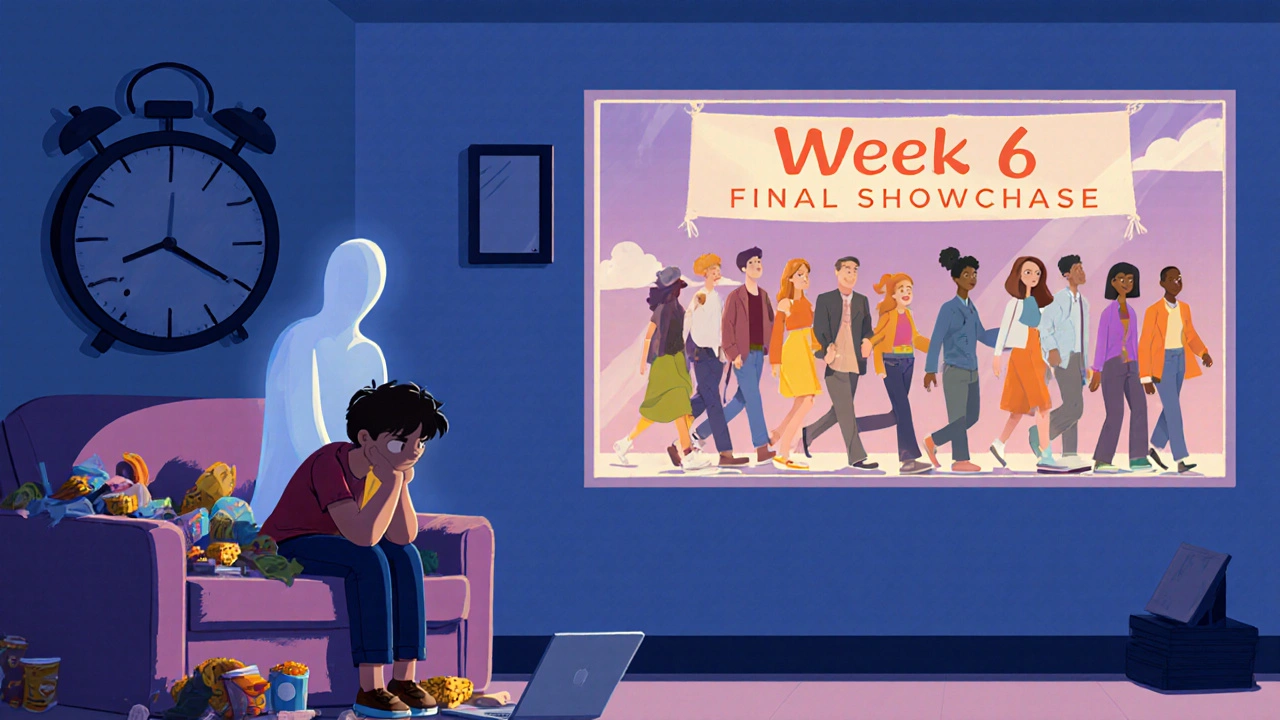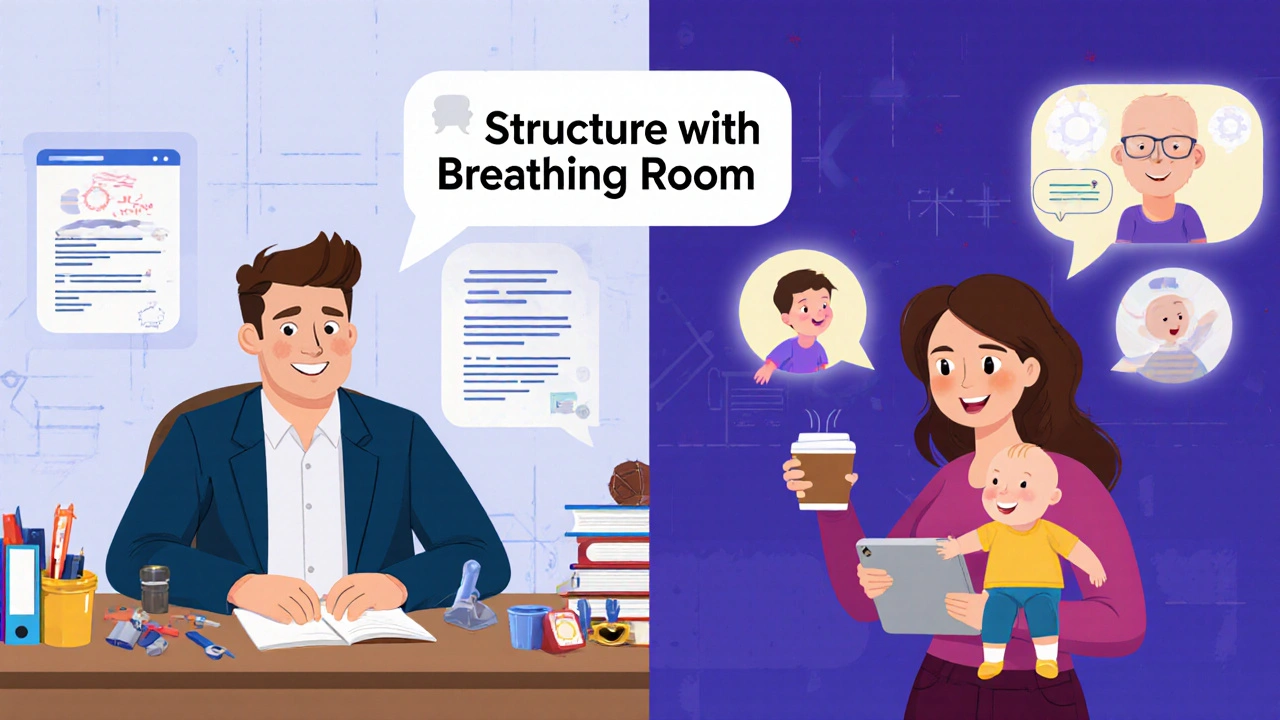Course Cohorts vs Self-Paced Models: Which Keeps Students More Engaged?
 May, 5 2025
May, 5 2025
When you sign up for an online course, you’re not just buying content-you’re choosing a way to learn. And that choice between course cohorts and self-paced models makes a huge difference in whether you stick with it or quit by week three.
Think about it: how many times have you started a course, got excited at first, then slowly drifted away? You weren’t lazy. You were just alone. No one checked in. No deadlines pushed you. No one else was struggling the same way you were. That’s the silent killer of online learning: isolation.
Cohort Learning: You’re Not Alone
Course cohorts group learners together, moving through the same material at the same time. You start on Monday, submit your assignment by Friday, join the live Q&A on Wednesday, and debate ideas in the discussion forum with 20 other people also trying to get through it.
This structure creates natural accountability. You don’t want to be the person who didn’t post. You don’t want to miss the group call. You show up because people are counting on you-even if it’s just to say, "I’m stuck on this too."
Research from Stanford’s Graduate School of Education tracked over 12,000 learners across 80 online programs in 2024. Those in cohort-based courses completed their programs at a rate of 72%. Self-paced learners? Just 29% finished. The gap wasn’t about difficulty. It was about connection.
Cohorts also build momentum. When someone posts a breakthrough in the forum-"I finally got the pivot table to work!"-it lights a fire under others. You see progress happening around you. That’s social proof in action. And it’s powerful.
Even the structure of deadlines helps. Humans aren’t wired to self-manage long-term goals without external anchors. Cohorts give you those anchors. Week 1: Introduction. Week 3: First project. Week 6: Peer review. Week 8: Final showcase. Clear, predictable, and human.
Self-Paced Learning: Freedom With a Cost
Self-paced courses promise total freedom. Start when you want. Pause when you need to. Skip ahead if you’re ahead. It sounds perfect-and for some people, it is.
But here’s the catch: freedom without structure often turns into procrastination. A 2025 survey of 5,000 learners on platforms like Udemy and Coursera found that 68% of self-paced students never finished their course. The average completion time? 11 months. Most people stopped after 2-3 weeks.
Why? Because motivation fades. Without a group, there’s no one to ask, "Are you still working on that?" No one to celebrate with when you finish a module. No shared frustration over a confusing video. You’re just you and a screen.
Self-paced models work best for people who already have strong discipline, clear goals, and a routine. Think: a senior engineer taking a Python course to upskill for a promotion. Or a retired teacher learning graphic design as a hobby. They don’t need external pressure. They’ve got internal drive.
But for the majority-working parents, career switchers, students balancing jobs and family-self-paced learning feels less like freedom and more like another chore on an already full list.

Engagement Isn’t Just About Completion
Completion rates tell part of the story. But real engagement? That’s deeper.
In cohort models, students don’t just finish-they interact. They form study groups. They message each other on Slack. They share resources outside the course. A 2024 study from MIT’s Open Learning Initiative found that cohort learners were 3.5 times more likely to recommend the course to a friend than self-paced learners.
Why? Because they didn’t just consume content. They built relationships around it. That’s the hidden benefit: learning becomes social. And humans learn better when they’re connected.
Self-paced learners, on the other hand, tend to treat courses like TV shows. They binge one module, then forget about it until next month. There’s no sense of community. No shared identity as a "learner in this program." It’s transactional. You pay. You watch. You move on.
Engagement isn’t just about clicking "next." It’s about feeling like you belong. Cohorts give you that. Self-paced models rarely do.
Who Benefits From Each Model?
Let’s be clear: neither model is better. They serve different people.
Cohorts are best for:
- People who need structure to stay on track
- Those learning new skills for a career change
- Students who thrive in group settings
- Learners who want feedback and accountability
- Anyone who feels isolated when learning alone
Self-paced is best for:
- Experts adding a new tool to their toolkit
- People with unpredictable schedules (shift workers, caregivers)
- Those learning for curiosity, not career
- Learners who already have strong time-management skills
- People who prefer to go deep, not fast
There’s also a third option: hybrid models. Some platforms now offer cohort-based courses with flexible deadlines. You’re still in a group, but you can submit assignments a few days late without penalty. That’s the sweet spot for many-structure with a little breathing room.

The Hidden Cost of Self-Paced Learning
Here’s something no one talks about: the emotional toll of self-paced learning.
When you’re in a cohort and you fall behind, you can ask for help. Someone says, "I was stuck there too." You feel seen.
When you’re alone and you fall behind? You start to think you’re dumb. Or lazy. Or not cut out for this. That shame spiral is real. And it’s why so many people quit.
Self-paced courses often assume you’re already confident. But most learners aren’t. They’re unsure. They need reassurance. Cohorts give it. Self-paced models don’t.
Platforms know this. That’s why top programs like Springboard, Coursera’s Guided Projects, and even LinkedIn Learning’s newer cohort tracks are shifting toward group-based formats. They’re not just selling content anymore. They’re selling belonging.
What You Should Choose
Ask yourself these three questions before signing up:
- Do I need someone to hold me accountable?
- Do I learn better by talking through ideas with others?
- Would I feel discouraged if I didn’t have a group to compare progress with?
If you answered "yes" to even one, go with a cohort.
If you’re the kind of person who loves to dive into a topic on your own schedule, who’s already confident in your ability to manage time, and who doesn’t mind going slow-then self-paced might be fine.
But if you’ve ever started a course and abandoned it? You’re not alone. And you don’t need more willpower. You need a community.
Learning isn’t a solo sport. It never was. The most successful learners aren’t the ones who worked the hardest. They’re the ones who didn’t quit because they had people beside them.
ujjwal fouzdar
October 30, 2025 AT 12:12Look man, we’re all just atoms in a cosmic course factory trying not to dissolve into existential dread. Cohorts? They’re just social glue for our fragile egos. Self-paced? That’s the void staring back at you while you binge Netflix and tell yourself you’ll start tomorrow. The real truth? We don’t learn. We perform. And performance needs an audience. Without one, even Einstein would quit by week two.
Anand Pandit
October 31, 2025 AT 03:49I’ve done both and honestly, cohort learning saved my career. I was stuck in a dead-end job, trying to learn data analysis on my own. After three months, I hadn’t even finished the first module. Then I joined a cohort - same schedule, weekly check-ins, group Slack. Within six weeks, I had my first project done. People cheered me on. I didn’t feel like a failure. I felt like I belonged. If you’re hesitating, just pick the cohort. You won’t regret it.
Reshma Jose
October 31, 2025 AT 04:26Ugh I literally just finished a self-paced course and I’m still mad. I paid $200, watched half the videos, got distracted by memes, and then felt guilty for weeks. Meanwhile my friend in the cohort group was posting daily updates, asking for feedback, even made a study group on Discord. I was alone. She got a promotion. Coincidence? I think not. We need to stop pretending self-paced is ‘freedom’ - it’s just loneliness with a certificate.
rahul shrimali
October 31, 2025 AT 19:50Cohorts work because you get pushed. No choice. No excuses. Just show up. Self-paced? You just become a ghost. You sign up. You disappear. No one notices. No one cares. That’s why you fail. Not because you’re lazy. Because no one’s watching. And humans need to be seen to stay alive. Simple.
Eka Prabha
November 1, 2025 AT 16:47Let’s not ignore the institutional manipulation here. The edtech industry knows full well that self-paced learners have lower retention. So they rebrand it as ‘flexibility’ while quietly phasing out support. Meanwhile, cohort models are monetized through premium group coaching, mandatory live sessions, and peer pressure monetization. The real question isn’t which model works - it’s who profits from your psychological vulnerability. The corporations. Always the corporations.
Bharat Patel
November 3, 2025 AT 00:19There’s a deeper layer here. We treat learning like a product - buy, consume, discard. But knowledge isn’t a thing you own. It’s a relationship you build. With yourself. With others. With the material. Cohorts force you into that relationship. Self-paced lets you ghost it. And ghosting knowledge? That’s not freedom. That’s spiritual avoidance. We’re not machines. We don’t learn in isolation. We learn through echo - the sound of someone else saying, ‘me too.’
Bhagyashri Zokarkar
November 3, 2025 AT 10:27i just wanna say i started a course last year and i was so excited like omg im gonna change my life and then i watched like 3 videos and then i got distracted by tiktok and then i felt so bad and then i deleted the app and then i cried for like 2 hours and now i just pretend i never signed up and my mom asks me every sunday if im still learning and i just say yes and then she smiles and i feel worse because she believes me and i dont even know what pivot tables are anymore
Rakesh Dorwal
November 4, 2025 AT 01:06Western education systems push this cohort nonsense because they want to control us. In India, we’ve always learned in groups - gurukuls, tuitions, family study circles. But now they sell it as ‘innovation’? It’s just cultural colonization wrapped in buzzwords. Self-paced is the real Indian way - disciplined, quiet, independent. You don’t need a group to learn. You need grit. And grit doesn’t need a Slack channel.
Vishal Gaur
November 4, 2025 AT 10:36Look i get what ur saying about cohorts but honestly i think the whole thing is overhyped. I tried one last year and everyone was just posting memes and talking about their weekend. No one actually did the work. The instructor was barely there. And the deadlines? Totally ignored. Meanwhile my self-paced course? I did it in 3 weeks, got a certificate, and moved on. No drama. No guilt. Just results. Maybe the problem isn’t the model - it’s the execution. Most of these courses are garbage anyway.
Nikhil Gavhane
November 5, 2025 AT 18:41I used to think self-paced was for the disciplined. Then I realized it’s for the ones who’ve never felt truly seen. Cohorts don’t just help you finish - they help you feel like you matter. I was in a cohort for digital marketing. I was shy. I barely spoke. But someone replied to my first comment with ‘this helped me too’ and I cried. Not because I learned pivot tables. Because someone noticed I was there. That’s the real ROI.
Rajat Patil
November 5, 2025 AT 23:43It is my observation that the human condition is deeply relational. Learning, as an act of growth, is not solitary by nature. The presence of others provides not only accountability, but also a mirror through which one can see progress. The absence of this mirror in self-paced models may lead not to independence, but to isolation. One may complete a course alone, but one becomes a learner only in community.
deepak srinivasa
November 7, 2025 AT 13:51What if the real issue isn’t cohort vs self-paced, but how we define success? Completion rates are easy to measure. But what about transformation? What about the quiet moment when someone finally understands something they’ve struggled with for months - alone? Maybe self-paced learners don’t finish, but they *change*. Maybe they don’t need a group to validate their progress. Maybe their victory is silent. And that’s okay too.
pk Pk
November 9, 2025 AT 10:02Hey, I’m a teacher and I’ve seen this over and over. Students in cohorts don’t just finish - they become leaders. They start study groups. They help others. They go on to teach what they learned. Self-paced learners? They disappear. And that’s not their fault. It’s the system’s. We need more hybrid models - group energy with flexible deadlines. And we need to stop treating learners like customers and start treating them like people. You’re not selling a course. You’re building a tribe.